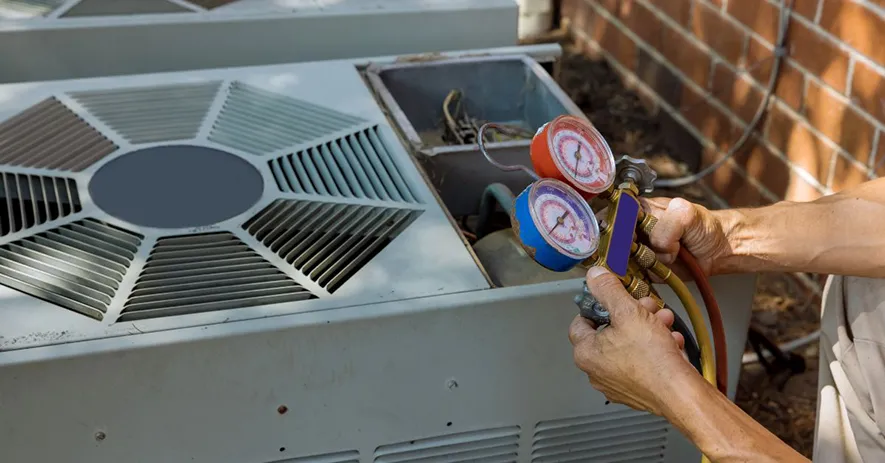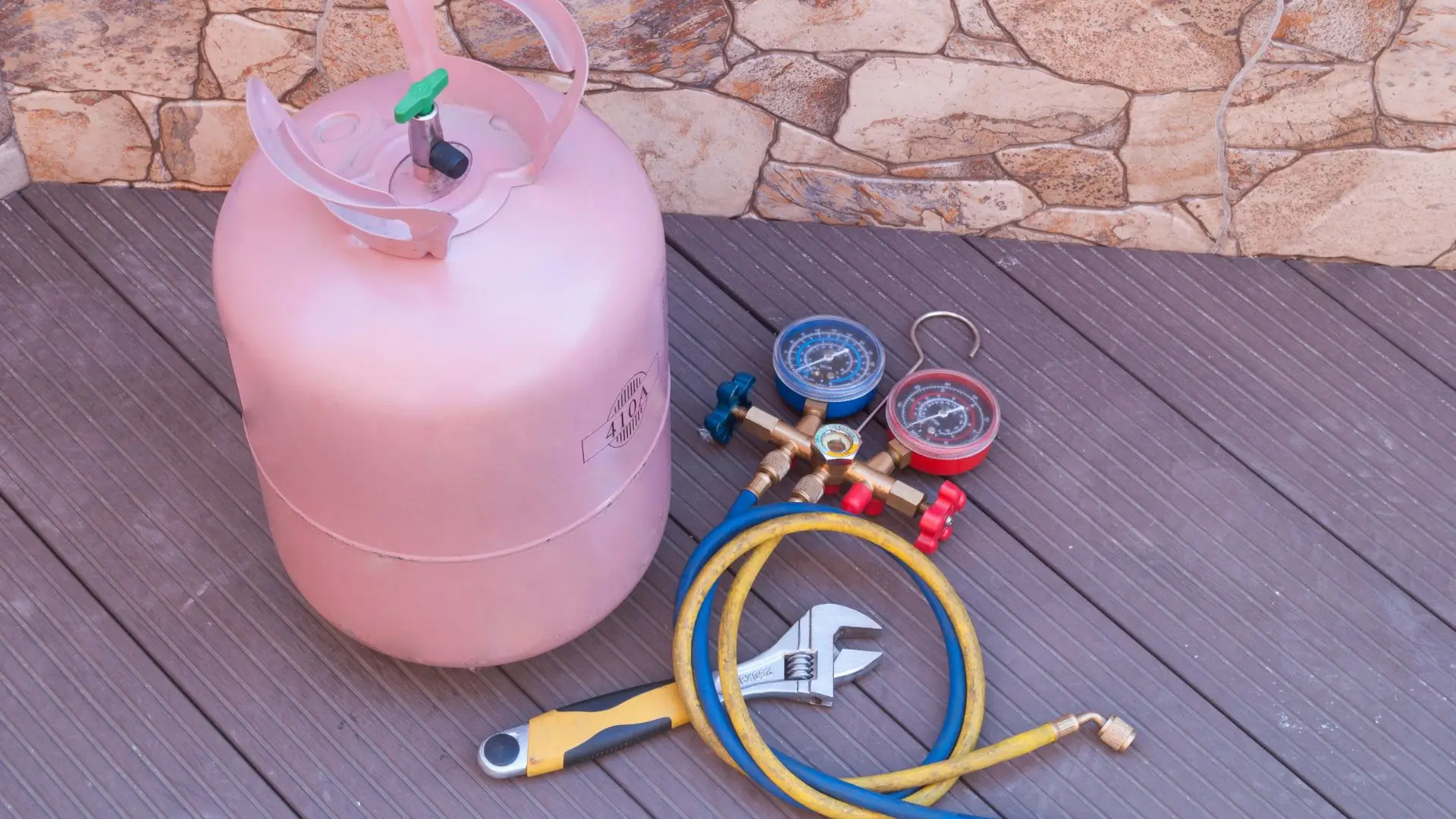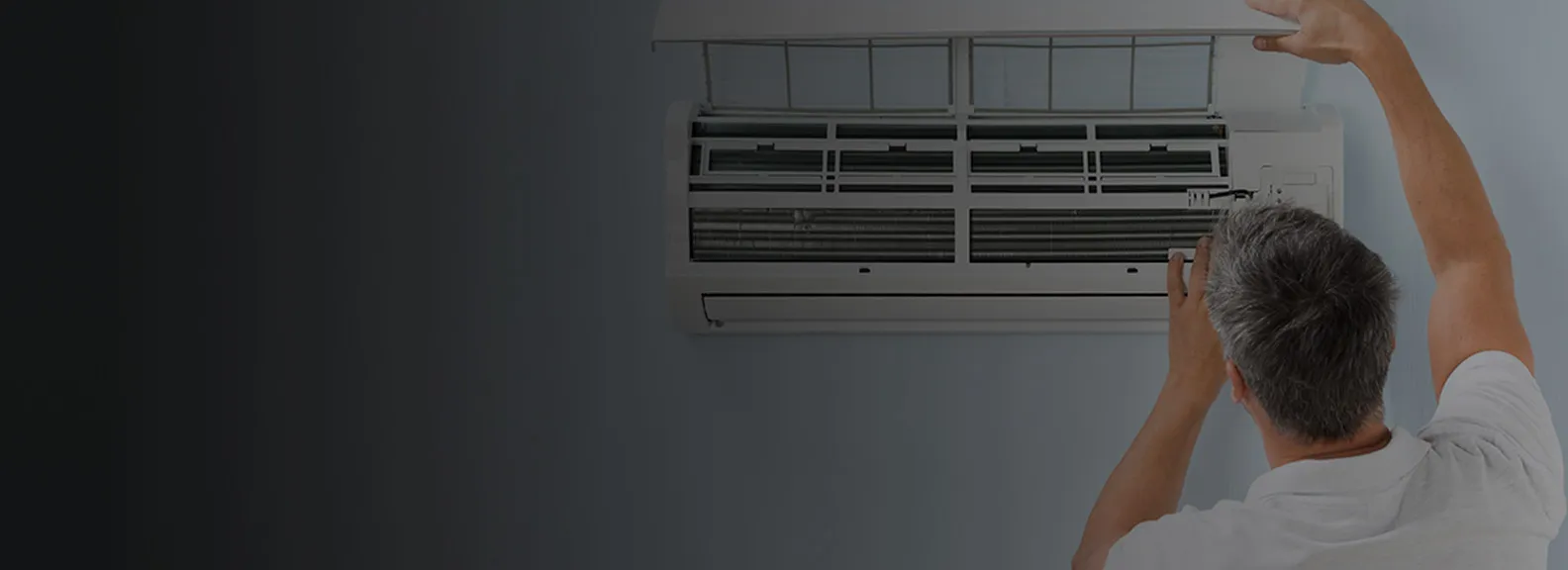Winter's frosty embrace often brings with it the dilemma of maintaining the perfect home temperature – warm enough to be cozy, yet efficient to keep energy bills in check.
This balancing act becomes particularly intriguing when you have a heat pump at the heart of your home's heating system. Unlike traditional furnaces, heat pumps require a nuanced understanding to optimize both comfort and energy use in the colder months.
In this guide, we delve into the art and science of setting your heat pump to the ideal winter temperature. We'll explore how to make your living space a haven of warmth without overburdening your energy consumption.
Whether you’re a seasoned heat pump user or new to this efficient heating method, this post aims to shed light on finding that sweet spot – the perfect temperature setting for your heat pump during winter’s chill.
Understanding Heat Pumps
As we navigate the nuances of setting the optimal temperature for your heat pump during winter, it's essential to first grasp the unique nature of heat pumps and how they operate differently from traditional heating systems in cold weather. This comprehension is crucial for making informed decisions about temperature settings to achieve maximum comfort and efficiency.
Fundamentally, a heat pump transfers heat from the outside air into your home. In winter, this process involves extracting whatever warmth is available in the cold outdoor air and amplifying it to heat your living spaces. This operation differs fundamentally from conventional heaters that generate heat directly. The efficiency of a heat pump in cold weather, therefore, hinges on its ability to harvest this external warmth - a task that becomes more challenging as outside temperatures drop.
This is where the concept of setting the optimal temperature comes into play. The colder it gets outside, the harder the heat pump must work to extract heat and maintain a warm indoor temperature. Setting your heat pump to an ideal temperature is a balancing act. It involves finding a point where the pump works efficiently without overexertion, ensuring both energy savings and consistent indoor comfort.
Moreover, the dual nature of heat pumps – providing heating in winter and cooling in summer – adds to their complexity in temperature management. This multifaceted functionality means that understanding the right winter settings is crucial for year-round efficiency and comfort.
In summary, appreciating how heat pumps function in winter conditions lays the groundwork for our discussion on optimal temperature settings. It helps us understand why certain temperatures are more effective and energy-efficient, guiding us towards making the best choices for our specific heating needs.
Factors Influencing Heat Pump Temperature Settings
Determining the ideal temperature setting for your heat pump in winter isn’t a one-size-fits-all equation. Several factors, both external and internal, play pivotal roles in this decision. Understanding these influences helps you tailor your heat pump settings for optimal comfort and efficiency.
- External Factors: The outside temperature and climate variability are significant influencers. Heat pumps are created to draw warmth from the outdoor air, and as the external temperature decreases, this process becomes more demanding. In extremely cold climates, a heat pump might need to work harder to maintain the same level of indoor warmth, affecting both its efficiency and the ideal temperature setting. Conversely, in milder winter climates, the heat pump operates more efficiently, allowing for more flexibility in temperature settings.
- Internal Factors: The characteristics of your home significantly impact how your heat pump functions. Excellent insulation keeps the warmth in and the cold out, allowing the heat pump to maintain a stable temperature efficiently. On the flip side, inadequate insulation may necessitate a higher temperature setting to attain the same level of comfort. Furthermore, the use of individual rooms and personal comfort preferences also factor into the equation. Rooms that are used more frequently might need to be kept warmer, and personal preferences for temperature can vary widely among individuals, affecting how you set your heat pump.
- Heating Approach: The choice between continuous and intermittent heating also affects your heat pump's efficiency. Continuous heating maintains a steady temperature, which can be more energy-efficient for heat pumps compared to constantly adjusting the temperature. Intermittent heating, though useful in certain scenarios, might lead to the heat pump working harder to reheat the space, leading to higher energy usage.
By considering these external and internal factors, along with your heating approach, you can make informed decisions about your heat pump settings in winter. This not only ensures personal comfort but also optimizes the energy efficiency of your heat pump.
Optimal Temperature Settings for Efficiency
Building on our understanding of heat pumps and the factors that influence their performance, let's delve into the heart of the matter: finding the ideal temperature setting for your heat pump in winter that strikes a perfect balance between energy efficiency and personal comfort.
- Ideal Temperature Range: Generally, setting your heat pump to a moderate temperature range is key to maximizing its efficiency. Most experts recommend a setting between 68°F to 72°F (20°C to 22°C) when you're at home and awake. This range is commonly deemed optimal for achieving comfort while simultaneously managing energy consumption. It's essential to avoid the temptation to set the thermostat significantly higher, as pushing the heat pump to produce more heat rapidly can lead to unnecessary energy usage and strain on the system.
- Comfort vs. Energy Savings: Balancing comfort and energy savings is a personal equation. While the suggested temperature range serves as a good initial guideline, individual comfort levels can differ. It's crucial to experiment within this range to determine what works best for you. Remember, each degree of adjustment can significantly impact your energy bills. For instance, reducing the thermostat by just a few degrees when you're asleep or away can result in noticeable savings over time.
- Utilizing Technology for Optimal Management: Programmable thermostats or smart home systems can be invaluable allies in managing your heat pump's efficiency. These devices enable you to establish automatic temperature adjustments based on your daily schedule. For example, you can program the thermostat to lower the temperature during the hours when the house is empty or everyone is asleep, and to return to a comfortable level before you wake up or return home. This not only enhances comfort but also reduces the energy burden on your heat pump, as the system maintains a relatively steady and efficient operation.
Determining the optimal temperature setting for your heat pump in winter involves more than just choosing a number. It’s about understanding how this setting interacts with external and internal factors and using technology to find a comfortable, energy-efficient balance. By taking a thoughtful approach to your heat pump's temperature settings, you can enjoy a warm, cozy home in winter without incurring unnecessarily high energy costs.
Common Misconceptions and Mistakes
As we navigate the optimal use of heat pumps in winter, it's crucial to dispel some common misconceptions and highlight frequent mistakes that can compromise both the efficiency of your system and your comfort. Understanding these can help you avoid unnecessary pitfalls and make the most of your heat pump.
- Myths About Heat Pump Operation in Cold Weather: A common misconception is that heat pumps are ineffective in cold weather. While it's true that their efficiency can decrease as the temperature drops, modern heat pumps are designed to be effective even in colder climates. They can extract heat from the air at surprisingly low temperatures, making them a viable heating solution throughout the winter.
- Setting Temperatures Too High or Too Low: A common mistake is extreme temperature settings. Setting the thermostat too high in an attempt to quickly warm up the house can strain the heat pump, leading to inefficiencies and increased wear. On the flip side, setting it too low to save on energy bills might not provide sufficient warmth and could lead to discomfort. The key is finding a moderate, consistent setting that maintains a balance between comfort and efficiency.
- The Concept of Overworking the Heat Pump: Overworking the heat pump is a critical concept to understand. When a heat pump is set to an excessively high temperature, it can run continuously without reaching the desired setting, especially on very cold days. This not only results in increased energy consumption but also places unnecessary strain on the system, potentially shortening its lifespan. Maintaining a consistent, moderate temperature assists the heat pump in operating smoothly and efficiently.
In summary, steering clear of these misconceptions and mistakes is vital in maximizing the performance of your heat pump during winter. By avoiding extreme temperature settings and understanding the capabilities and limitations of your heat pump, you can enjoy a warm, comfortable home while keeping your energy consumption in
Optimizing Winter Warmth: Heat Pump Guidance from Sunset Heating & Cooling
As we wrap up our journey through the intricacies of setting the perfect winter temperature for your heat pump, it's clear that achieving the ideal balance of warmth and efficiency is both an art and a science. This process, blending practical know-how with an understanding of your personal comfort needs, is crucial for a cozy and energy-efficient home during the colder months.
At Sunset Heating & Cooling, we're more than just service providers; we're your partners in home comfort. Our experienced team is committed to ensuring that your heat pump operates at its best, delivering the warmth you need without incurring unnecessary energy costs. From routine maintenance to adjusting settings for optimal efficiency, we are committed to enhancing your home's heating experience.
Navigating the nuances of heat pump settings can sometimes be complex, and while some adjustments can be managed independently, professional expertise often makes a significant difference. That's where Sunset Heating & Cooling comes in. We bring the expertise and attention to detail necessary to ensure your heat pump is not just functional but finely attuned to your specific needs.
For expert advice, maintenance, or any heat pump-related services, remember that Sunset Heating & Cooling is here to help. Reach out to us at (503) 500-5866 for a blend of top-tier expertise and personalized care, ensuring your winter days are comfortably warm and your energy bills remain manageable.







